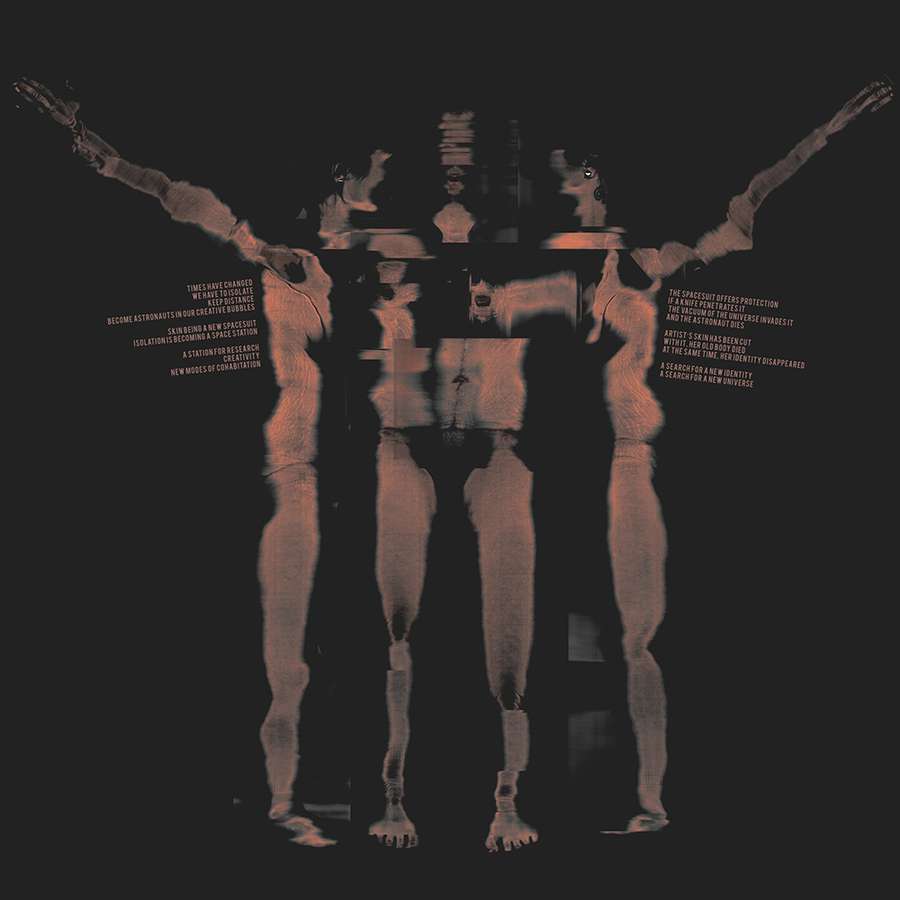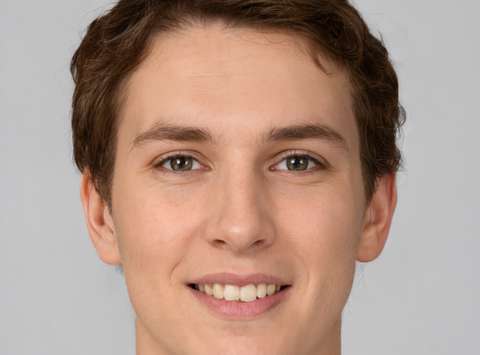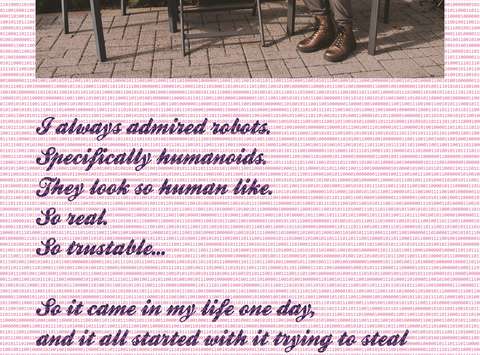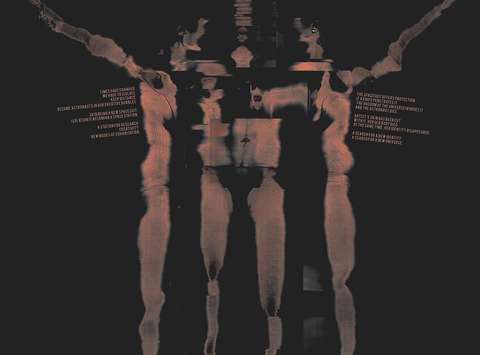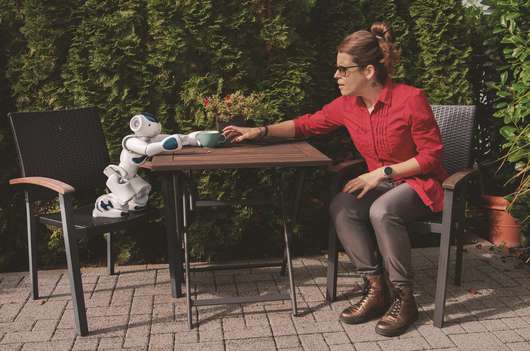Valerie Wolf Gang
The Beautiful Face of Artificial Intelligence
At the centre of Valerie Wolf Gang’s artistic research lies the complex relationship between human beings and technology.
She is interested in the impact of technology on society and, especially, on one’s perception of one’s own identity. The starting point for the exhibition is the question of whether artificial intelligence can be creative without human input, which is explored in her project Fluid (2018) in which she used poetry to teach neural networks creativity, focusing on the topic of healthy lifestyles. As a consequence of her several months-long collaboration with the computer, her daily habits started to change, leading to a transformation of her body.
The centrepiece of the exhibition is an interactive installation featuring a baroque frame embedded with a digital mirror. The installation contains three derivations in terms of the three building blocks of self-image of a person: one’s own perception projections and desires, and the perspective of society. The first look into the mirror allows us to see our own body in its reality. The second highlights our inner world, as the image in the mirror begins to change when the brainwave monitor is placed on the head. The appearance of the image is then further transformed by the extraction of data from the internet, such as the value of shares, bitcoin, or the temperature of the atmosphere.
The other works on display contain a great deal of the artist’s intimate experience with technology, with Valerie Wolf Gang revealing to the visitor individual stories from the history of her research into AI, software and, above all, robotics. A video loop shows an industrial car-painting robot and her trying to humanise it by teaching it the greeting “Hello, nice to meet you!” A series of photo prints, depicting the artist’s month-long cohabitation with a robot in six acts, combines a fictional and a true story. Within the fictional narrative, the robot deviates from Asimov’s Three Laws of Robotics and gradually subjugates her – starting from the initial act of attempting to take a cup of coffee away from her. On the passepartout, her life story is written in binary code; it is an element of reality that at the same time continues her transformation from a physical to a digital body. The ubiquity of digital identities and the demand of today’s technology to redefine the human body are further explored in a graphic portrait of a fictional person. It is an AI-generated image and a database, which mined images of people recorded in public areas by surveillance cameras. It is accompanied by a video in which the artist poses questions to children about the identity of the figure they believe to be a real person and onto which they map their own identities, desires, and fears. The installation is rounded off by a collage – made up of archival images of several months of scanning her skin with a hand-held scanner – that captures moments when her body was undergoing the most significant transformation due to weight loss in the course of her collaboration with artificial intelligence. The collage is accompanied by sound and three photographs showing the completed transformation of her physical body.
Valerie Wolf Gang’s exploration of the role of technology, artificial intelligence, and robotics in everyday life not only connects the virtual transformation of the visitor with the changes she herself has experienced but also reveals the impact of technology on the individual and on society at large by tackling issues of the body and identity.
Colophon
Production: Museum and Galleries of Ljubljana / Galerija Tobačna, KID KIBLA Mreža centrov RUK, UV Arthouse, KD Galerija GTCo-production: Galerija SC Zagreb, KID KIBLA Mreža centrov RUKExhibition curator: Alenka TrebušakArtist: Valerie Wolf GangText: Alenka TrebušakDesign: Ajdin BašićTechnical realization: Žiga Pavlovič, Technical Service MGMLThe exhibition was made possible by: City of Ljubljana, Department for Culture
Acknowledgements: DFKI - German Research Center for Artificial Intelligence, Goethe Institute, Urša Bonelli Potokar, Sara Mikelić, Heike Leonhard, dr. Daniel Sonntag, Festival Bobri, Tadeja Pungerčar, OŠ Prežihovega Voranca, Andrej Koritnik
Location
Tobačna ulica 1
1000 Ljubljana
Information and reservations:
T +386 1 24 12 500
T +386 1 24 12 506
E prijava@mgml.si
Opening hours
Exhibition space is open according to exhibitions:
Tuesday–Friday: 11:00–19:00
Monday, Saturday, Sunday: Closed
Tickets
Free entry.
